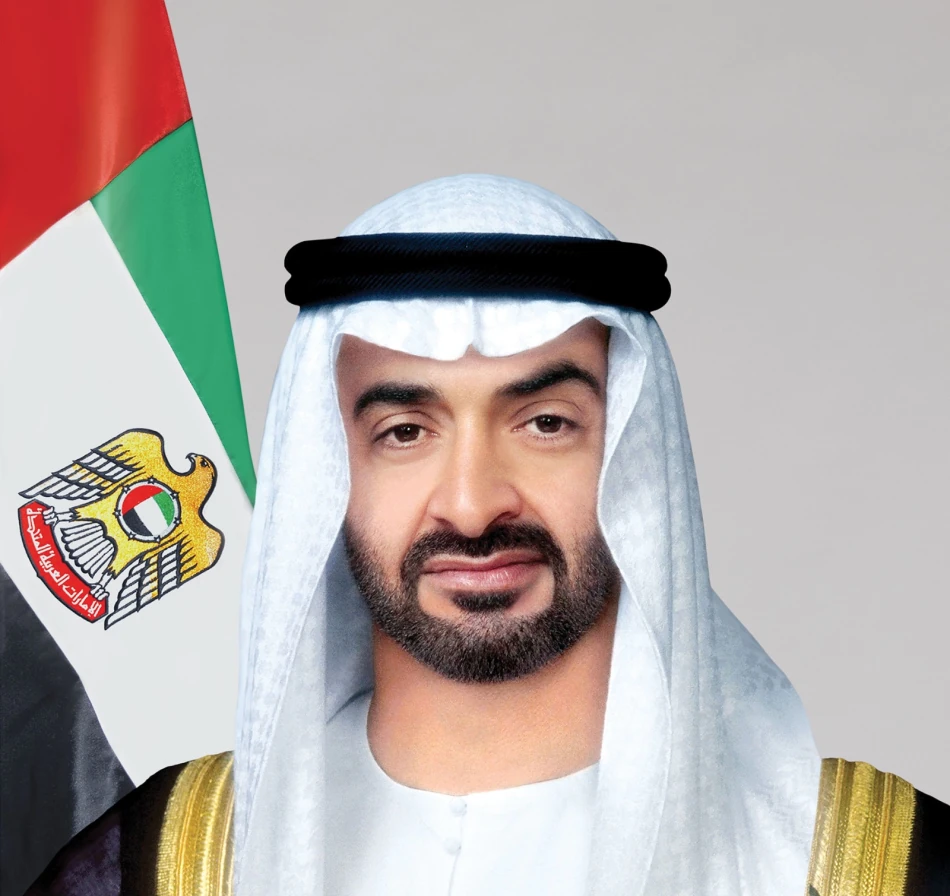
State Leader Embarks on Landmark Official Visit to Russia
UAE President Sheikh Mohamed bin Zayed Arrives in Moscow for Strategic Diplomatic Mission
UAE President Sheikh Mohamed bin Zayed Al Nahyan has arrived in Moscow for an official state visit to Russia, accompanied by a high-level delegation that signals the deepening strategic partnership between the two nations. The visit comes at a critical juncture in global geopolitics, as both countries navigate complex international relationships and seek to expand economic cooperation despite Western sanctions on Russia.
High-Level Diplomatic Reception Underscores Bilateral Importance
The UAE leader received full military honors upon his arrival at Vnukovo Airport, with Russian military aircraft escorting his plane through Russian airspace—a gesture typically reserved for the most significant state visits. The formal reception included the playing of both national anthems and an honor guard ceremony, demonstrating Russia's commitment to maintaining strong ties with Gulf allies.
The delegation accompanying Sheikh Mohamed reflects the comprehensive nature of the visit, spanning security, economic, and technological cooperation. Key figures include Sheikh Hamdan bin Mohammed bin Zayed Al Nahyan, Deputy Chief of Staff for Special Affairs, and several ministers overseeing advanced technology, foreign trade, and investment portfolios.
Strategic Timing Amid Global Realignment
Economic Pragmatism Over Western Pressure
This visit occurs as the UAE continues to balance its relationships with both Western allies and sanctioned nations like Russia. Unlike European countries that have largely severed economic ties with Moscow, the UAE has maintained a pragmatic approach, viewing Russia as an important energy partner and investment destination.
The presence of Trade Minister Dr. Thani bin Ahmed Al Zeyoudi and Investment Minister Mohammed Hassan Al Suwaidi suggests substantial economic agreements may be finalized during the visit. This mirrors similar strategies employed by other Gulf states, particularly Saudi Arabia, which have refused to isolate Russia economically despite Western diplomatic pressure.
Technology and Security Cooperation
The inclusion of Dr. Sultan Al Jaber, Minister of Industry and Advanced Technology, points to potential collaboration in emerging technologies—an area where Russia maintains significant capabilities despite sanctions. This could encompass everything from space technology to artificial intelligence, sectors where the UAE has ambitious development goals.
The presence of Ali bin Hammad Al Shamsi, Secretary-General of the Supreme National Security Council, indicates discussions will likely cover regional security challenges, including Iran's influence in the Middle East and ongoing conflicts in Syria and Yemen.
Implications for Regional and Global Markets
For investors and energy markets, this visit represents continuity in UAE-Russia energy cooperation, particularly in oil coordination through OPEC+ mechanisms. The two countries have successfully collaborated on oil production policies that have supported global energy prices, benefiting both economies.
The diplomatic engagement also reinforces the UAE's position as a neutral hub for international business, even as global trade routes become increasingly fragmented along geopolitical lines. This neutrality has proven economically beneficial, attracting both Western and Eastern capital to Dubai and Abu Dhabi's financial centers.
Broader Geopolitical Calculations
This visit exemplifies the UAE's sophisticated foreign policy approach under Sheikh Mohamed's leadership—maintaining strategic autonomy while deepening partnerships across multiple spheres of influence. Unlike the binary choices faced by many nations since Russia's actions in Ukraine, the UAE has successfully navigated between competing powers while advancing its national interests.
The comprehensive nature of the delegation suggests this isn't merely a ceremonial visit but rather a substantive diplomatic engagement that could yield concrete agreements in energy, technology, and trade. Such outcomes would further cement the UAE's role as a bridge between East and West in an increasingly multipolar world.
Most Viewed News

 Sara Khaled
Sara Khaled






